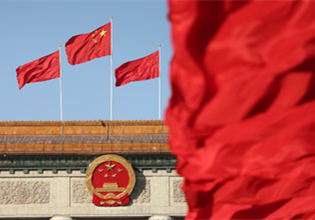New energy capacity in Inner Mongolia exceeds 60 million kW
As of Dec 20, the installed capacity of new energy grid in North China's Inner Mongolia autonomous region reached 60.13 million kilowatts, and it is expected to exceed 65 million kW by the end of the year.
That's according to the latest news from the region's energy bureau.
This is another milestone for new energy development in the region, after the installed capacity of new energy there exceeded 50 million kW in December 2020.
As an important national energy and strategic resource base, Inner Mongolia is rich in renewable energy resources.
The capacity of wind energy resources in the region is 1.46 billion kW, accounting for about 57 percent of China's total. And its solar energy resource capacity reaches 9.4 billion kW, accounting for about 21 percent of the country's total.
In recent years, Inner Mongolia has accelerated the construction of a clean, low-carbon, safe and efficient energy system.
This year, the region's energy bureau has issued a series of planning and guidance documents on wind power, photovoltaics, energy storage, hydrogen energy, and new energy equipment, and compiled the "New Energy Development Layout and Orderly Utilization Planning Plan for the Region."
The plan conducted systematic research and planning on the potential, layout and utilization of the region's new energy resources, and took the lead in the country to implement a number of zero-carbon and low-carbon parks and market-oriented grid-connected new energy projects.
In terms of wind power and photovoltaic base construction, Inner Mongolia is fully promoting the layout of large-scale wind power photovoltaic bases in the four desert areas of Kubuqi, Ulan Buhe, Tengger and Badain Jaran.
"Currently, the total scale of new energy projects under construction in the region is more than 100 million kW. It is estimated that by 2023, the installed capacity of grid-connected new energy in the whole region will exceed 90 million kilowatts." an official from Inner Mongolia's energy bureau said.



 Print
Print Mail
Mail





